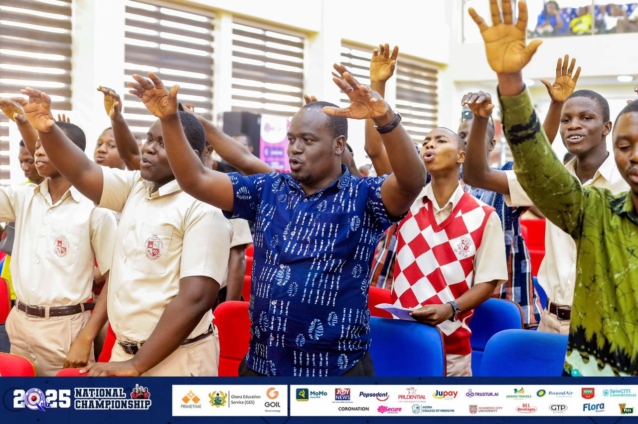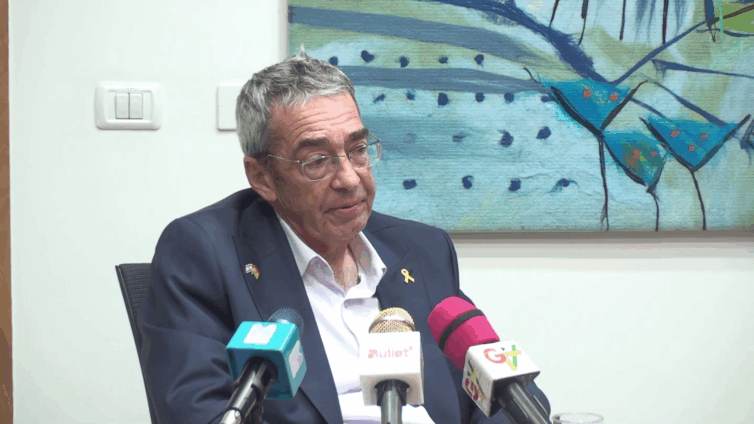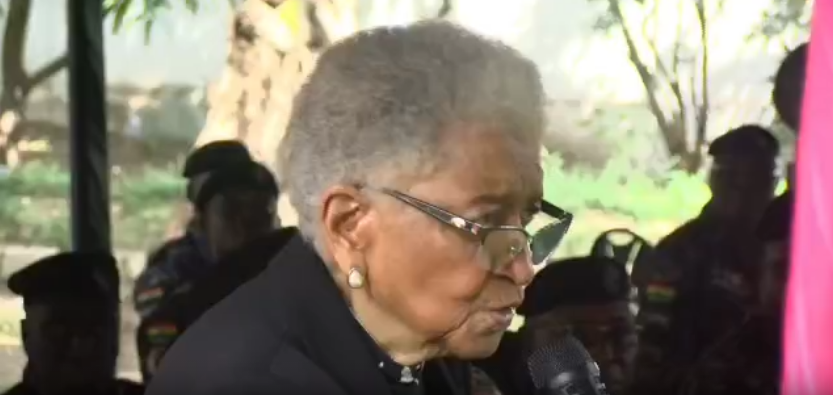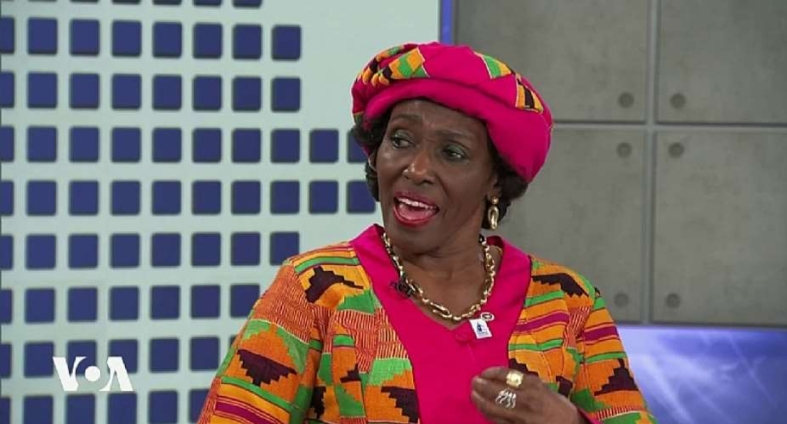Ghana's Galamsey Crisis: Intense Debate and Action Against Illegal Mining Menace

Ghana is currently grappling with two significant and interconnected challenges: the rampant illegal mining activities, commonly known as 'galamsey', and the pervasive and increasing threat of pesticide pollution. Both issues pose severe environmental, economic, and health risks, demanding urgent and coordinated national interventions to safeguard the nation's future.
The mining sector, particularly illegal mining, has been a focal point of concern for its failure to generate sustainable employment and deliver quality jobs, as highlighted by economist Professor Godfred Bokpin from the University of Ghana. He argues that despite the sector's potential, it has been weakly harnessed, contributing a mere 12% to total revenue, significantly less than the oil and gas sector's 22.3%. Prof. Bokpin has also expressed deep frustration over the perceived inaction of current leadership in curbing galamsey, emphasizing that such environmental destruction necessitates bold interventions.
The environmental devastation caused by illegal mining is stark. Reports indicate that over 60% of Ghana’s rivers, including major ones like the Pra, Birim, Offin, and Ankobra, are critically polluted. Additionally, 34 forest reserves have been destroyed through deforestation. Economically, galamsey costs the country an estimated $2 billion annually in lost revenue and smuggled gold, while also escalating health risks, particularly mercury-related illnesses. Beyond these, the Minister for the Interior, Muntaka Mohammed-Mubarak, underscored that illegal mining is a borderless, transnational industry that undermines governance, promotes corruption, threatens national stability, and facilitates money laundering, with 64% of illicit and organised crime proceeds in Ghana and the sub-region linked to environmental and natural resource crimes.
Various efforts are underway to combat galamsey. The Blue Water Guards in the Wassa Amenfi East Municipality have conducted swoops, destroying numerous Chanfang engines, pumping machines, shovels, and other mining equipment, burning makeshift shelters, and arresting suspects. This demonstrates a reinforced determination to protect communities and water bodies. Minister Mohammed-Mubarak advocates for stronger regional and international cooperation, aligning mining governance with intelligence-led security strategies, and strengthening regional collaboration to ensure mining contributes to resilience, peace, and environmental sustainability. Academic City University has released a white paper calling for a coordinated national approach, moving beyond fragmented crackdowns. Key recommendations include strengthening mining laws, depoliticizing enforcement, targeting financiers, empowering traditional authorities, investing in alternative livelihoods, and leveraging modern technology like drones, GIS mapping, and real-time water monitoring. The university has partnered with Arima Resources Limited to advance this fight through research, technological innovation, and evidence-based solutions, including the deployment of autonomous drones for surveillance and intelligent environmental monitoring systems.
Parallel to the mining crisis, Ghana faces an under-reported but equally alarming issue of pesticide pollution. Despite media attention on environmental destruction from mining and poor air quality, the ubiquitous environmental pollution caused by pesticides receives inadequate attention. These toxic chemicals are used not only on rural farms but also regularly in urban areas and households, often without full understanding of their dangers. Pesticides are persistent poisons that contaminate soil and water sources, leading to biodiversity loss, destruction of beneficial insect populations, and reduced nutritional value of food, according to the Special Rapporteur on the right to food.
The impact on human health is profoundly concerning. Studies have linked pesticide exposure to premature births, congenital malformations, spontaneous abortions, genetic damage, lower sperm concentrations, heart disease, cancer, and other disorders. Children are particularly vulnerable, encountering pesticides daily through air, food, dust, soil, and surfaces. Acute and chronic exposure in children has been associated with adverse birth outcomes, pediatric cancers, neurobehavioral and cognitive deficits, and asthma. Early-life exposure to organophosphate insecticides has also been linked to reductions in IQ and abnormal behaviours associated with attention-deficit/hyperactivity disorder and autism.
Alarmingly, pesticide use in Ghana is increasing, with the Ministry of Food and Agriculture reporting annual imports of 40 million litres – more than a litre for every person. Usage rates have soared from 19% in 2006 to over 50% in 2017. This surge is attributed to factors like the decreasing availability of farm labour, making pesticides an 'efficient' alternative for weed control. Moreover, the influence of organizations like AGRA (formerly the Alliance for a Green Revolution in Africa) is cited for promoting the addiction of smallholder farmers to agrotoxins. A critical concern is the continued export of agrotoxins, banned for use in European Union countries, to African nations like Ghana, highlighting a need for the EU to end this hypocrisy.
To address pesticide pollution, policymakers and citizens are urged to take action. The government must immediately ban the import of EU-banned pesticides, implement a nationwide recall, and ensure safe disposal of all existing stock. This should be complemented by sustained public service awareness and education campaigns to minimize pesticide use and ensure appropriate handling, including the use of protective equipment, supported by extensive monitoring and enforcement. Furthermore, the government should provide subsidies for locally produced bio-pesticides and support institutions like CSIR in commercializing developed bio-pesticides through public-private partnerships. The Ministry of Food and Agriculture should also offer technical support to farmers for sustainable management of unwanted plants through low-cost, appropriate technologies like crimper rollers and by encouraging cover-cropping. Ultimately, engaged citizens are crucial to ensure policymakers implement and enforce these vital policies for the collective best interest.
In conclusion, Ghana faces a dual environmental crisis from illegal mining and escalating pesticide pollution. While efforts are being made to tackle galamsey, the silent threat of pesticides demands equal attention. It is imperative that Ghana addresses both problems simultaneously, implementing comprehensive policy reforms and fostering collective action to protect its environment, public health, and ensure sustainable national development.
Recommended Articles
Ghana's Brightest Minds Battle It Out: NSMQ 2025 Quarterfinals Deliver Shocks and Dominance

The National Science and Maths Quiz recently showcased a series of exhilarating contests, featuring a dramatic upset whe...
Gaza Fallout: Israeli Envoy Demands Hamas Disarmament, Slams 'Genocide' Tag in Ghana

The Israeli Ambassador to Ghana, H.E. Roey Gilad, has critically engaged Ghanaian officials, refuting accusations of gen...
Nation Bids Farewell: Ghana United in Grief for Nana Konadu Agyeman-Rawlings

Ghana is deeply mourning the passing of its former First Lady, Nana Konadu Agyeman-Rawlings, at 76. Tributes from global...
Ghana Gripped by Grief: Mourning Visionary Former First Lady Konadu Agyeman-Rawlings
&format=jpeg)
Ghana has declared a three-day national mourning period for the late former First Lady, Nana Konadu Agyeman-Rawlings, wh...
Ghana Mourns Nana Konadu Agyeman-Rawlings: The Iron Lady Who Redefined Womanhood and Power

Ghana mourns the death of Nana Konadu Agyeman-Rawlings, the trailblazing former First Lady who transformed women’s right...
You may also like...
Rooney Blasts 'Crisis Mode' Liverpool: Champions Lacking Leadership and Salah's Form a Major Concern

Defending Premier League champions Liverpool are in a worrying slump, having lost four consecutive matches. Former Engla...
Real Madrid Stuns Barcelona with Clasico Masterclass; Mbappe, Bellingham Shine

Europe's top football leagues delivered a weekend of high drama, featuring Real Madrid's controversial El Clásico victor...
Daily Show Drama: Jon Stewart's Battle for Creative Freedom Amid Paramount-Skydance Merger

Jon Stewart revealed at the New Yorker Festival that he is actively seeking to extend his contract at “The Daily Show” d...
Hemsworth Breaks Silence: The Weight of Replacing Cavill in Witcher Season 4

Liam Hemsworth will debut as Geralt of Rivia in The Witcher Season 4 this Fall, replacing Henry Cavill. Hemsworth shared...
Mzoe 7's 'Fela Kuti' Spectacle: Zimbabwean Artist Redefines Music & Drama!

Mzoe 7's recent one-man show at the Bulawayo Theatre has redefined performance standards, captivating audiences with a m...
Zimbabwean Duo Bantu & Dr. Chaii Seize Apple Music's Isgubhu Spotlight!

Award-winning Zimbabwean artists Bantu and Dr. Chaii are the latest Apple Music Isgubhu cover stars, celebrated for thei...
Caroline Flack Tragedy: Mother's Heartbreak Over Texts Found on Lewis Burton's Phone

Caroline Flack's mother, Christine, is heartbroken by newly resurfaced questions surrounding texts found on Lewis Burton...
Strictly's Claudia Winkleman's Daughter: A Decade On From Horrific Halloween Accident

After 12 years, Claudia Winkleman is stepping down from Strictly Come Dancing to prioritize her family, including her da...